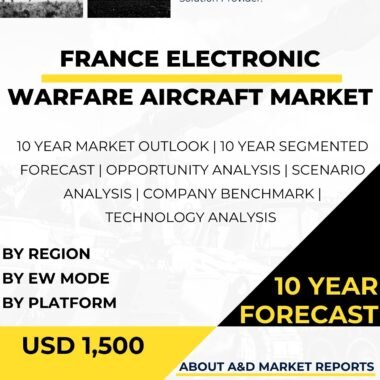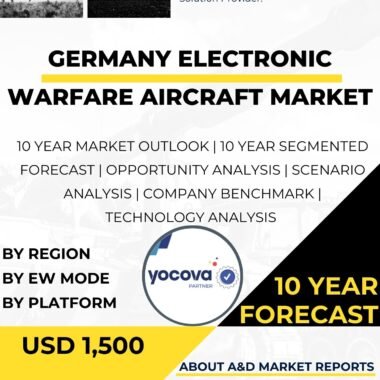Description
The Belgium underwater communication market is a significant segment within the country’s defense, maritime, and offshore industries. Underwater communication systems play a crucial role in enabling reliable and secure communication between submerged platforms, underwater vehicles, divers, and surface vessels. These systems facilitate effective command and control, data transmission, and situational awareness in underwater environments, supporting a wide range of applications, including defense, maritime research, oil and gas exploration, and environmental monitoring. Belgium recognizes the importance of advanced underwater communication technologies in enhancing its defense capabilities, supporting maritime operations, and promoting scientific research.
The primary driver for the Belgium underwater communication market is the need for reliable and efficient communication in underwater environments. Traditional communication methods such as radio waves and optical fibers are ineffective underwater due to their limited range and high attenuation. Underwater communication systems utilize acoustic waves to transmit and receive signals, enabling long-range and robust communication in water. Belgium’s focus on underwater communication is driven by the need to enhance its defense capabilities, support maritime operations, and enable effective data exchange and coordination in underwater environments.
Belgium’s domestic defense, maritime, and technology industries play a significant role in the development, production, and integration of underwater communication systems. Belgian companies, such as Subsea Tech and Oceanscience, have expertise in underwater technology and contribute to the country’s defense and maritime capabilities. These domestic capabilities foster innovation, create job opportunities, and contribute to the economic growth of the Belgium underwater communication market.
Collaborations with international partners and suppliers are also significant for the Belgium underwater communication market. Belgium often engages in partnerships with defense and technology companies from NATO member states and other allied nations to access advanced underwater communication technologies, benefit from joint research and development programs, and ensure interoperability with allied forces. These collaborations enable Belgium to leverage global advancements in underwater communication capabilities, enhancing the performance, reliability, and effectiveness of its defense and maritime operations.
Furthermore, Belgium’s participation in multinational defense and research initiatives influences the underwater communication market. Collaboration within NATO and other international organizations fosters interoperability, joint research projects, and the exchange of best practices. This cooperation ensures compatibility and enhances the operational effectiveness of underwater communication systems when conducting joint military operations or scientific research with allied forces or international partners.
The Belgium underwater communication market faces challenges such as acoustic propagation, data rates, and environmental conditions. Acoustic waves used for underwater communication experience challenges such as signal degradation, scattering, and absorption, which affect the range and reliability of communication systems. Ongoing research and development efforts are necessary to improve the efficiency and performance of underwater communication technologies in challenging underwater environments.
Data rates in underwater communication systems are typically lower compared to terrestrial communication systems. The limited bandwidth and channel capacity underwater pose challenges in transmitting large volumes of data in real-time. Advances in signal processing techniques, modulation schemes, and error correction codes are crucial to improving data rates and enabling faster and more efficient underwater communication.
Environmental conditions, including underwater noise, temperature, and pressure, can affect the performance of underwater communication systems. Belgium’s defense industry must develop robust and resilient systems that can operate effectively in various underwater conditions. Testing, validation, and standardization of underwater communication technologies are essential to ensure reliable performance and interoperability in diverse maritime environments.
In conclusion, the Belgium underwater communication market is a significant segment within the country’s defense, maritime, and offshore industries. Advanced underwater communication systems provide critical capabilities for reliable and secure communication in underwater environments. Domestic capabilities, collaborations with international partners, and Belgium’s participation in multinational defense and research initiatives drive the growth and development of the underwater communication market. As operational requirements evolve and technological advancements continue, the demand for advanced and efficient underwater communication systems is expected to increase, fostering innovation, collaboration, and economic growth within the sector.




